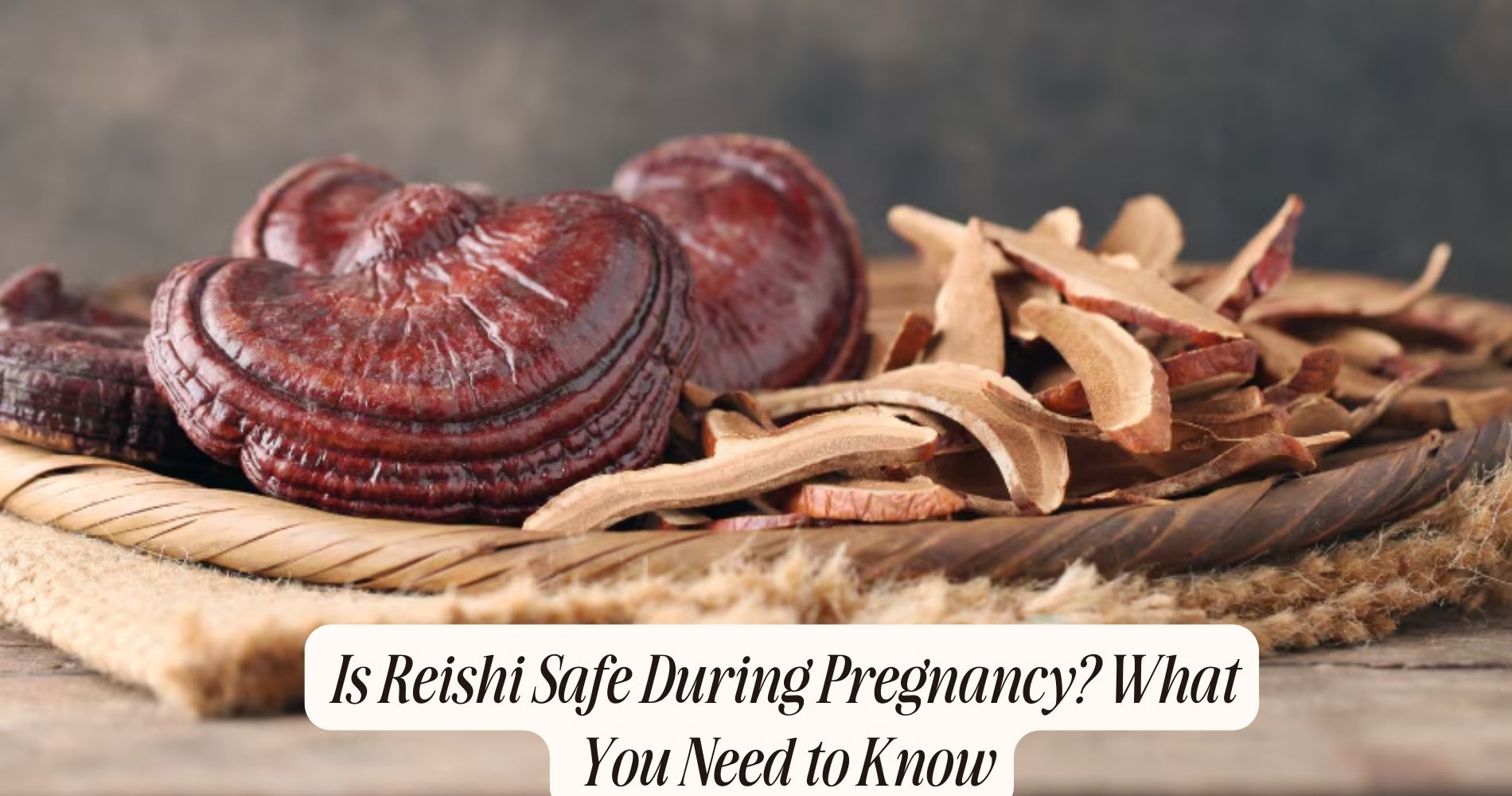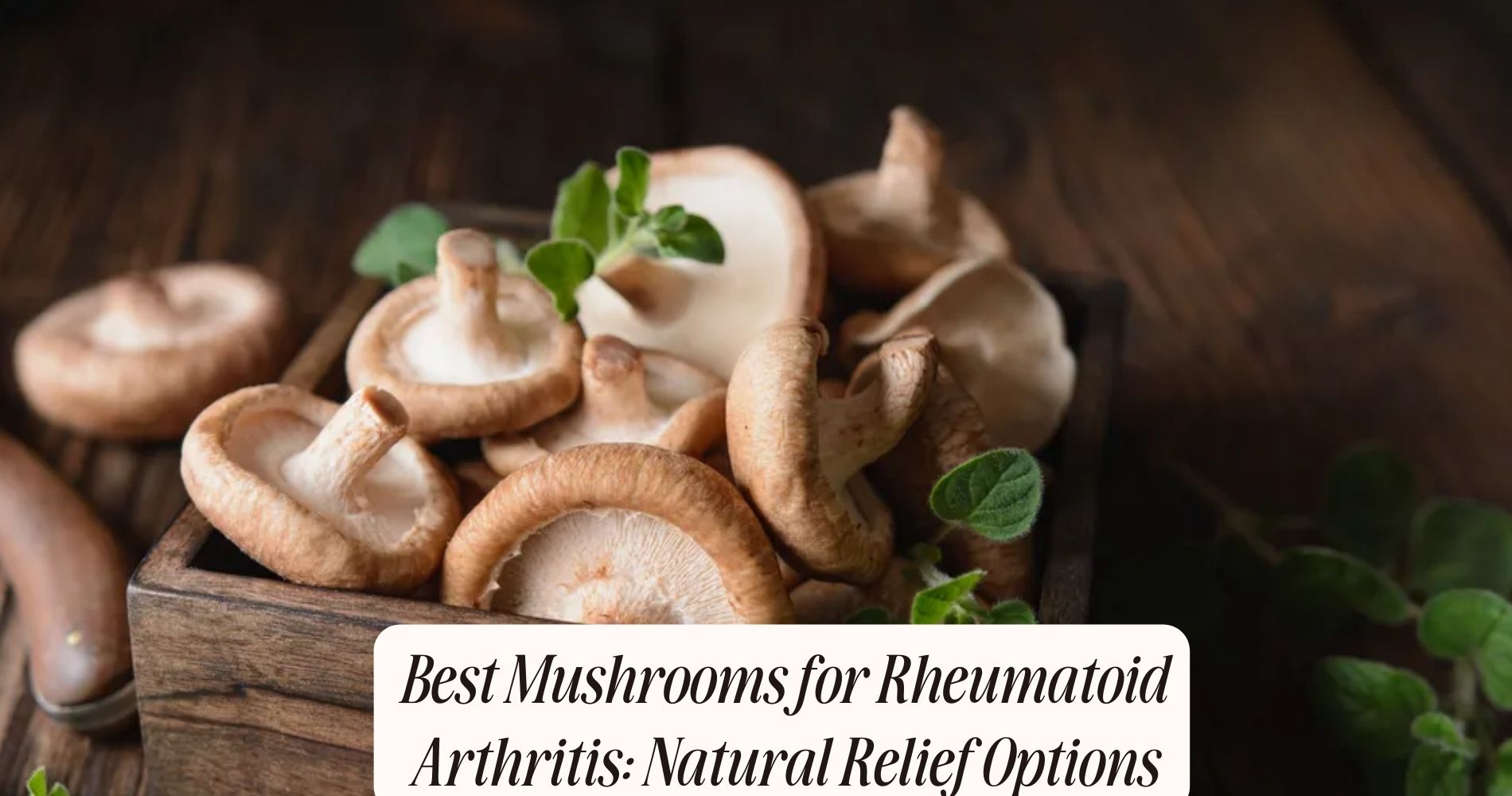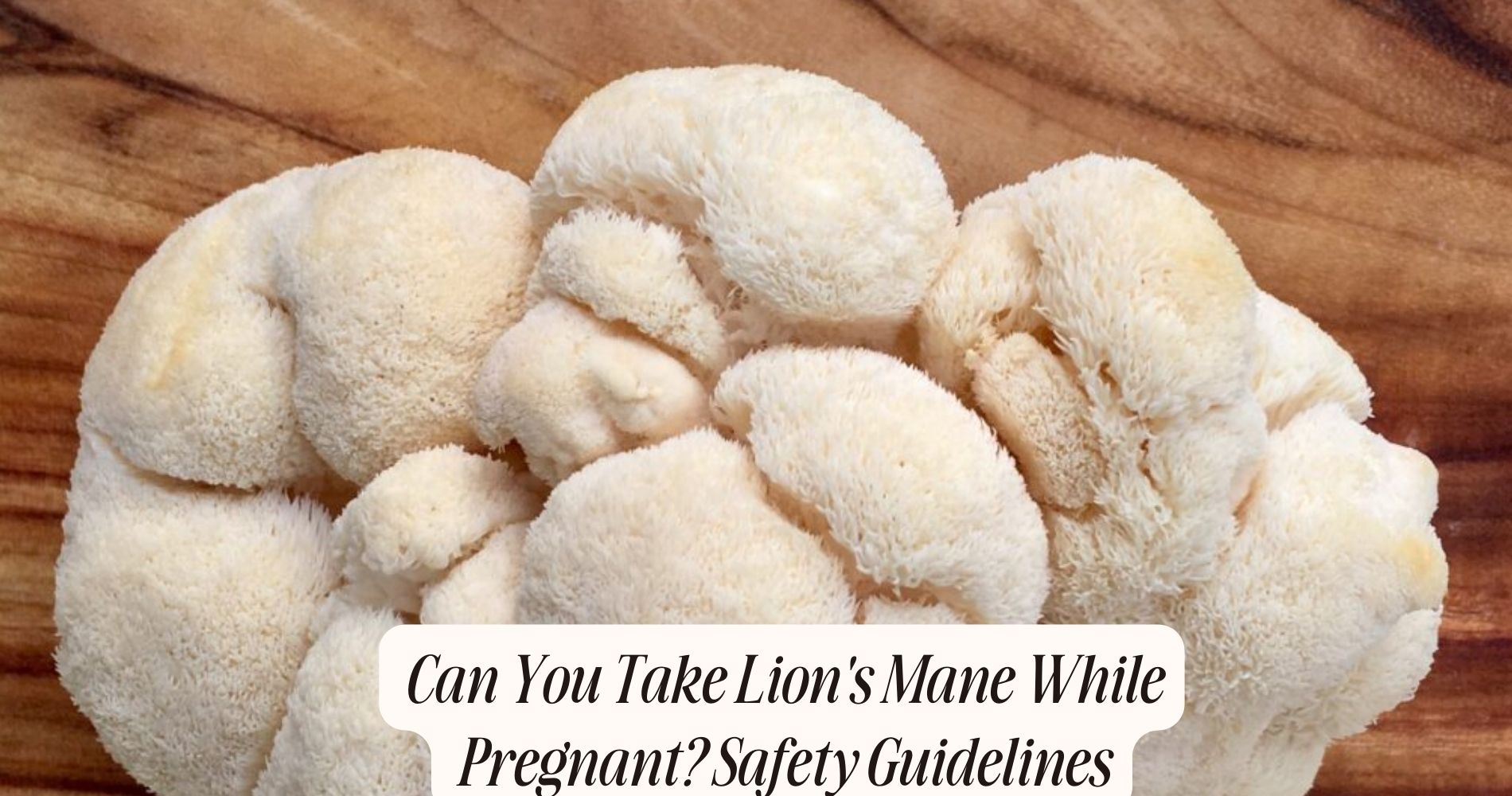
Is Reishi Safe During Pregnancy? What You Need to Know
Is reishi safe during pregnancy? Reishi, or Ganoderma lucidum, is a revered medicinal mushroom known for its immunomodulating and adaptogenic properties. While it offers various health benefits, its safety during pregnancy remains under-researched. Potential risks include gastrointestinal discomfort, hormonal imbalance, and liver toxicity. Reishi also has blood-thinning properties, which can pose risks during pregnancy. Given this limited evidence, it's crucial to consult your healthcare provider before using reishi while pregnant. They can offer personalized advice based on current research and your medical history. For a deeper understanding of the topic, you'll find additional insights ahead.
What Is Reishi?
Reishi, also known as Ganoderma lucidum, is a medicinal mushroom renowned for its immunomodulating and adaptogenic properties. As a unique fungal species, Reishi has been used in traditional medicine for centuries, particularly in East Asia. It's often referred to as the 'Mushroom of Immortality' due to its wide range of purported health benefits.
Traditionally, Reishi has been utilized to enhance vitality, increase longevity, and support overall well-being. Ancient texts from China and Japan document its use in teas, powders, and extracts to treat various ailments, from respiratory conditions to liver disorders. Its bioactive compounds, such as polysaccharides, triterpenoids, and peptidoglycans, are believed to contribute to its therapeutic effects.

In modern times, the focus on Reishi has expanded beyond traditional usage to include rigorous scientific research. Studies have confirmed its potential in modulating immune responses and acting as an adaptogen, which helps the body resist stressors of all kinds.
As you explore the use of Reishi, it's important to understand its historical context and the scientific basis behind its application. This foundational knowledge will guide you in making informed decisions, especially during pregnancy.
Health Benefits of Reishi
You'll find that Reishi mushrooms offer several health benefits backed by scientific evidence. They can bolster your immune system, provide significant stress relief through adaptogenic properties, and deliver powerful antioxidants that combat oxidative stress.
Understanding these benefits is crucial when considering Reishi's safety during pregnancy.
Immune System Support
Numerous studies indicate that consuming reishi mushrooms can enhance immune system function by modulating various immune cells and cytokines. This immune modulation is particularly beneficial for flu prevention, as reishi has been shown to balance the activity of T-cells, B-cells, macrophages, and natural killer cells. By regulating these immune components, reishi helps your body maintain a robust defense against viral infections.
Reishi mushrooms also stimulate the production of cytokines, which are vital signaling proteins that mediate and regulate immunity. These cytokines enhance the body's ability to detect and respond to pathogens, further strengthening your immune system's resilience. In addition, reishi's polysaccharides and triterpenes contribute to its immunomodulatory effects, making it a powerful ally in maintaining overall health.
However, while reishi's benefits are well-documented, its safety profile, especially during pregnancy, remains under-researched. Pregnant women should exercise caution and consult healthcare providers before incorporating reishi into their regimen. The immune system undergoes significant changes during pregnancy, and introducing new substances could have unintended consequences. Always prioritize professional medical advice to guarantee the best outcomes for both you and your baby.
Stress Relief Properties
Scientific evidence suggests that the bioactive compounds in reishi mushrooms can greatly reduce stress levels by modulating the body's cortisol production and promoting relaxation. These compounds, primarily triterpenoids and polysaccharides, have shown promise in lowering cortisol levels, the hormone responsible for stress. By doing so, reishi can help you achieve emotional balance and mental clarity, which are important during pregnancy.
Clinical studies indicate that reishi's adaptogenic properties contribute to its stress-relieving effects. Adaptogens are natural substances that help the body adapt to stress and maintain homeostasis. Reishi's ability to balance cortisol levels means you'll likely experience improved emotional stability and reduced anxiety levels.

Moreover, the mushroom's impact on the nervous system shouldn't be overlooked. Reishi has been found to influence neurochemical pathways, enhancing the production of neurotransmitters like serotonin and dopamine. These neurotransmitters play a significant role in mood regulation, further contributing to emotional balance and mental clarity.
However, while these benefits sound appealing, it's crucial to consult your healthcare provider before incorporating reishi into your regimen. Pregnancy presents unique physiological changes, and your healthcare provider can help you weigh the potential benefits against any risks.
Antioxidant Benefits
While reishi's stress-relieving properties are remarkable, its potent antioxidant benefits also demand attention, particularly during pregnancy. Antioxidants play a critical role in protecting your cells from oxidative stress, which can be heightened during pregnancy due to increased metabolic demands. Reishi mushrooms are rich in polysaccharides and triterpenoids, compounds known for their antioxidant properties.
These antioxidants support nutrient absorption, ensuring that both you and your baby receive essential vitamins and minerals. Improved nutrient absorption helps in maintaining best maternal and fetal health, which is essential during pregnancy. Additionally, reishi's antioxidants can enhance skin health by neutralizing free radicals, which are responsible for premature aging and skin damage.
Scientific studies have shown that antioxidants in reishi can bolster the immune system, an added benefit when your body is working overtime to support new life.
While there's substantial evidence supporting the health benefits of reishi, it's important to consult your healthcare provider before incorporating it into your regimen. They can offer personalized advice based on your specific health needs and guarantee that you and your baby remain safe while reaping these potential benefits.
Reishi and Pregnancy Safety
You should consider the potential health benefits and possible side effects of Reishi during pregnancy.
While some studies suggest Reishi can boost the immune system and reduce inflammation, it's important to evaluate its safety profile carefully.
Potential side effects, including allergic reactions and interactions with other medications, warrant thorough discussion with your healthcare provider.
Potential Health Benefits
Given its rich history in traditional medicine, reishi mushroom has been investigated for its potential benefits during pregnancy, though its safety profile remains under scrutiny. Reishi, known scientifically as Ganoderma lucidum, may offer several health advantages that could be beneficial during pregnancy.
For instance, reishi is touted for its positive impact on cardiovascular health. During pregnancy, maintaining ideal cardiovascular function is important due to increased blood volume and cardiac output. Some studies suggest reishi may help regulate blood pressure and improve overall heart health, potentially reducing the risk of complications like preeclampsia.
Additionally, reishi is believed to support liver function, an important aspect of prenatal health. The liver works overtime during pregnancy to filter toxins and produce essential proteins. Research indicates that reishi may enhance liver enzyme activity, promoting detoxification and metabolic balance. This could be particularly helpful in mitigating pregnancy-related liver issues such as intrahepatic cholestasis.

While these potential benefits are promising, it's important to approach reishi use during pregnancy with caution. Always consult your healthcare provider before adding any supplements to your regimen. The current evidence is still evolving, and personalized medical advice is crucial.
Possible Side Effects
Despite reishi's potential benefits, it's important to take into account the possible side effects and risks associated with its use during pregnancy. One significant concern is digestive issues. Some studies suggest that reishi can cause gastrointestinal discomfort, including nausea, diarrhea, and abdominal pain. These symptoms can be particularly problematic during pregnancy when your digestive system is already under stress.
Another critical aspect to take into account is hormonal imbalance. Reishi mushrooms are known to influence the endocrine system, potentially affecting hormone levels. During pregnancy, maintaining hormonal balance is essential for both maternal and fetal health. Disruptions in hormones could lead to complications such as preterm labor or developmental issues for the baby.
Moreover, there's a lack of thorough research on the safety profile of reishi during pregnancy. The absence of well-rounded, evidence-based studies means that the potential risks may not be fully understood. Given these uncertainties, healthcare professionals often advise against the use of reishi for pregnant women.
Scientific Research on Reishi
Numerous clinical studies have investigated the pharmacological effects and safety profile of Reishi (Ganoderma lucidum) during pregnancy. Reishi, cultivated extensively due to its therapeutic properties, has a rich historical usage in traditional Chinese medicine. You might be curious about how these attributes translate to modern medical perspectives and their implications for pregnant individuals.
In controlled laboratory settings, Reishi has shown potential benefits, such as immunomodulation, anti-inflammatory effects, and antioxidant properties. However, these studies often use animal models or non-pregnant human subjects, making their direct application to pregnant individuals uncertain. The active compounds in Reishi, including polysaccharides and triterpenoids, have demonstrated various pharmacodynamics, but their impact during pregnancy remains inadequately studied.
The existing research primarily focuses on the general population, leaving a significant gap in data specific to pregnancy. Some studies suggest that Reishi could influence hormonal pathways, which may potentially affect fetal development. While Reishi cultivation and its historical usage highlight its broad therapeutic potential, the lack of targeted research on pregnant individuals necessitates caution.
Always consult your healthcare provider before considering Reishi during pregnancy due to these uncertainties.
Expert Opinions on Reishi
Healthcare professionals often stress the importance of caution when considering the use of Reishi during pregnancy, given the limited and inconclusive research on its effects. Despite its traditional uses and cultural significance in various Eastern medicinal practices, experts argue that there's insufficient scientific evidence to validate its safety for pregnant women.
Reishi, also known as Ganoderma lucidum, has a long history in traditional Chinese medicine, where it's been used for its purported immune-boosting and stress-relieving properties. However, modern medical experts emphasize the need for well-controlled clinical trials to understand its pharmacological impacts fully. They caution that the bioactive compounds in Reishi could interact with pregnancy-specific physiological changes in unpredictable ways.

While Reishi is celebrated for its cultural significance and has been consumed for centuries, experts highlight that traditional uses don't always equate to safety in pregnancy. They advise consulting healthcare providers before introducing any herbal supplements into your regimen during this critical period. Given the delicate nature of pregnancy, erring on the side of caution is often recommended.
Until more robust, evidence-based studies are available, the consensus leans toward avoiding Reishi to mitigate any potential risks to both the mother and the developing fetus.
Potential Risks of Reishi
The bioactive compounds in Reishi may pose potential risks during pregnancy, as their interactions with physiological changes in the body aren't well understood. One primary concern is liver toxicity. Reishi contains triterpenoids, which can affect liver enzymes and potentially lead to hepatotoxicity. Pregnant women already experience significant changes in liver function, making them more susceptible to adverse effects.
Another risk involves blood thinning properties. Reishi has anticoagulant effects, which can interfere with normal blood clotting mechanisms. During pregnancy, the body undergoes a hypercoagulable state to prevent excessive bleeding during childbirth. Introducing a blood thinner like Reishi could disrupt this balance, increasing the risk of hemorrhage.
There's limited research on Reishi's safety profile in pregnant women, making it difficult to predict its effects accurately. Animal studies have shown mixed results, and human studies are scarce. Given these potential risks, it's important to consult with your healthcare provider before considering Reishi supplementation during pregnancy. They can offer personalized advice based on your medical history and current health status.
Always prioritize evidence-based recommendations to guarantee both your safety and that of your unborn child.
Alternatives to Reishi
Given the potential risks associated with Reishi during pregnancy, exploring safer alternatives becomes essential. One viable option is incorporating herbal teas known for their safety and beneficial effects. Chamomile tea, for instance, is widely regarded as calming and can help alleviate anxiety and insomnia, common issues during pregnancy.
Another excellent choice is ginger tea, which has robust evidence supporting its efficacy in reducing nausea and morning sickness.
In addition to herbal teas, prenatal vitamins are important for ensuring you and your baby get essential nutrients. These vitamins are specifically formulated to meet the increased nutritional needs during pregnancy. Key components such as folic acid, iron, and calcium are crucial for fetal development and maternal health.
Folic acid, in particular, is important for preventing neural tube defects.
Moreover, integrating a balanced diet rich in fruits, vegetables, lean proteins, and whole grains can provide a natural source of the vitamins and minerals you need. While herbal supplements like Reishi may pose risks, these safer alternatives can help you maintain good health without compromising safety.
Always make sure that any herbal teas or prenatal vitamins you choose are evidence-based and approved for use during pregnancy.
Consulting Your Healthcare Provider
Before making any decisions about using Reishi or its alternatives during pregnancy, consult your healthcare provider to guarantee both maternal and fetal safety. Your healthcare provider can address individual concerns and provide personalized advice based on your medical history and current health status.
Reishi mushrooms, while often praised for their immune-boosting properties, haven't been extensively studied in pregnant populations, making professional guidance essential.

Discussing your interest in Reishi with your healthcare provider allows for a thorough evaluation of potential benefits and risks. They can monitor for possible interactions with other medications or prenatal supplements you may be taking. Additionally, they can consider any underlying conditions that might make Reishi consumption more or less advisable during pregnancy.
Your healthcare provider will also have access to the latest research and evidence-based recommendations. This ensures that any advice you receive is grounded in current medical knowledge. They can suggest alternative therapies or supplements that are proven safe for pregnant individuals, ensuring you and your baby receive top-notch care.
Discover the Benefits of SUPER MUSHROOM GUMMIES
While exploring the safety of Reishi during pregnancy, it's essential to consider all aspects of your nutritional health. SUPER MUSHROOM GUMMIES by Well Gummies offer a convenient and delicious way to support your overall well-being. These gummies are crafted with 10 types of functional mushrooms, providing a vegan solution for enhancing focus, boosting immune function, and sustaining energy without any jitters or crashes. Each gum chew bursts with the flavor of fresh wild berries, making it as enjoyable as your favorite candy. Whether you're pregnant or simply seeking a natural way to stay energized and focused, SUPER MUSHROOM GUMMIES are an excellent addition to your daily regimen.
Frequently Asked Questions
Can Reishi Interact With Prenatal Vitamins or Other Medications?
Reishi might affect nutrient absorption and medication synergy with prenatal vitamins or other drugs. Consult your healthcare provider to confirm it's safe, as interactions could impact your health and the effectiveness of your medications.
How Should Reishi Be Stored During Pregnancy?
For proper storage and to maximize shelf life, you should keep reishi in a cool, dry place away from direct sunlight. Make sure it's stored in an airtight container to prevent moisture and contamination, preserving its efficacy.
Are There Specific Brands of Reishi Supplements Recommended for Pregnant Women?
You should prioritize brand reputation when choosing reishi supplements. Follow dosage guidelines meticulously and consult your healthcare provider. Evidence-based recommendations are limited, so professional medical advice is essential for ensuring safety during pregnancy.
What Are the Signs of an Allergic Reaction to Reishi During Pregnancy?
When experiencing an allergic reaction to reishi during pregnancy, you might notice allergic symptoms like hives, itching, or swelling. These indicate an immune response, and you should immediately consult your healthcare provider for guidance.
Can Reishi Affect the Taste or Quality of Breast Milk Postpartum?
Reishi can potentially cause taste changes in breast milk, impacting your infant's feeding preferences. Evidence suggests it might affect milk production. Consult your healthcare provider to guarantee safety and best nutrition for you and your baby.
Conclusion
Considering the current evidence and expert opinions, it's best to exercise caution with reishi during pregnancy.
While reishi offers several health benefits, its safety for expectant mothers hasn't been thoroughly researched. Potential risks, including immune system modulation, warrant careful consideration.
Always consult your healthcare provider before incorporating any supplements into your routine. Opt for well-studied alternatives like prenatal vitamins and a balanced diet to guarantee both you and your baby's well-being.




